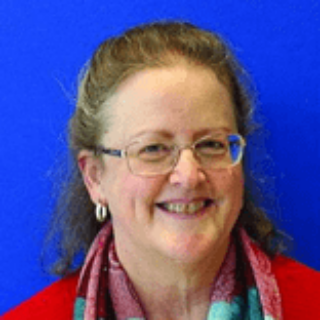On February 24, 1944, Captain A.J. Hardy stood on the cold and windy deck of a speed boat just off the coast of England. Hardy was a member of the U.S. Army 8th Air Force (8th USAAF) and was filming British Royal Air Force (RAF) rescue operations in the North Sea.
The 8th USAAF was new to World War II and was learning from the RAF. The Americans wanted to develop their own procedures for saving airmen’s lives. American air crews were returning from bombing missions over Europe to airfields in England. If any were forced to ditch their B-17 Flying Fortress in the North Sea, the U.S. needed to be able to locate and rescue their crewmen.
Lieutenant Colonel A.J. Hardy
But on that day, the RAF performed a highly unusual rescue: five Dutch college students fleeing the Nazi-occupied Netherlands in a home-made boat. The students refused to sign a loyalty oath required by Nazi authorities and were determined to escape their homeland to carry on resistance activities in England. The group managed to travel 100 miles of open sea in a 21-foot craft powered by a 1929 Chevrolet engine running on stolen fuel. They were lucky. Many were captured or drowned in similar, unsuccessful attempts.
Snapshot of footage from 1944 rescue of the Dutch students.
Captain Hardy filmed the rescue of the students and the scuttling of their tiny craft. British authorities interrogated the five students—John Osten, Hein Fuchter, Edzard Moddemeijer, Henk Baxmeier, and Flip Winckel—and dismissed the possibility they were spies. Afterward, the young men pursued their fight for the liberation of the Netherlands.
Captain Hardy continued his work observing the RAF’s rescue techniques and later developed an 8th USAAF Air Sea Rescue Unit for which he was awarded the Bronze Star.
This account is just a tiny footnote to the stories of 16 million Americans who served in World War II—not to mention the 5.7 million who served during the Korean War, 8.7 million who served during the Vietnam War, 2.3 million who served during Desert Storm, and nearly 3 million who have served in the Global War on Terror as of this writing.
Each of those veterans has a story, too.
Veterans History Project interview with Frank E. Head, Merchant Marine, who served during WWII and the Korean War.
Atlanta History Center’s Veterans History Project collects, preserves, and makes accessible the stories of all veterans, as well as civilians who supported them in the USO, Red Cross, and in war industries and the homefront. Atlanta History Center is a founding partner in the Library of Congress (LOC) Veterans History Project, established in 2000. Atlanta History Center’s own collection, however, began in 1995 and contains more than 730 interviews.
Many of those 730 veterans said, “I didn’t do anything special,” or “My story isn’t unique,” or “I didn’t serve in combat,” or “I never left the United States.” The implication is always, “My story is unimportant.”
Atlanta History Center conducts an average of four interviews each month and we leave each interview enlightened, uplifted, and frequently astonished at the experiences of these men and women. Their stories are unique. Their stories are important.
And we are in a race against time to collect them while we can.
We are often rewarded at the conclusion of an interview when the veteran remarks, “I’ve never told anyone that before. I’m glad I did this.” At the end of one World War II veteran’s interview, his wife whispered, “I’ve waited 80 years to hear that.”
Image shared by Gerry Hutchinson, U.S. Navy Reserves, from his time in service in Afghanistan.
Personally, what I find most moving is when the family of a veteran learns that we have preserved the story of their father, grandmother, aunt, uncle, or some other friend or relative. Recently, a young woman approached me at an oral history conference and said she thought we had interviewed her grandfather several years ago. Within seconds, I pulled up his interview on our website and showed it to her. It brought her to tears.
As a Navy wife, Air Force daughter, and Army granddaughter, I can only imagine how she felt because all of my veterans are gone. They never talked much about their service and they all said they “didn’t do anything.”
That included my father, Captain (later Lieutenant Colonel) A.J. Hardy. I never knew about that 1944 rescue on the North Sea until Flip Winckel’s son contacted me a few years ago.
Flip’s son has the original film. I’ve been privileged to meet him and the RAF boat captain’s son. I have their fathers’ stories and that means I have at least a part of my father’s story. But I would give anything to see my Dad’s face, hear his voice, and have him tell me what happened that day and how he felt about it.
If you are a veteran, please share your story with us.
If you love a veteran, please encourage them to contact us.
Author Margaret Atwood once said, “In the end, we’ll all become stories.”
Please make sure yours is preserved.
We invite all of you to join us at our annual Veterans Day Commemoration. Each year we gather in our Veterans Park on November 11th at 11:00am to honor the sacrifice of those who have served the United States armed forces.
For more information about the Veterans History Project, or to participate, please call 404.814.4042 or email veteranshistoryproject@atlantahistorycenter.com.
Sue VerHoef is Atlanta History Center’s Director of Oral History and Genealogy. Sue is one of our most passionate colleagues, particularly when it comes to preserving the stories of veterans. Her work with our Veterans History Project ensures that future generations will better appreciate the realities of war and the sacrifices of those who serve in uniform.


